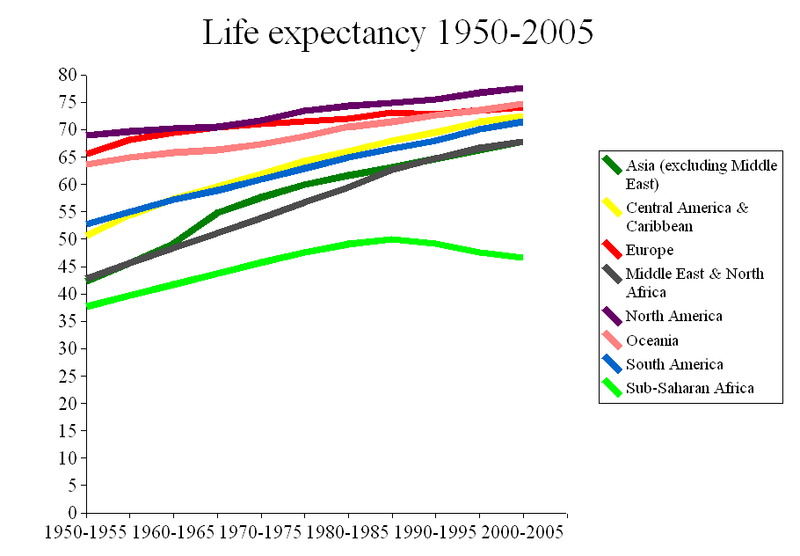
On Third World Security
by Arundhati Pal
The current global security agenda is set to distort the traditional development agenda of poverty reduction and economic growth. Each paragraph of this essay will set out the argument in the following points. While the security concerns may originate in the rest, it is the security of the West that is of paramount importance in the emerging global consensus. The impact of these concerns raises serious challenges for the diversion, misallocation and sustainability of aid flows. These ‘changes’ for the benefit of the West would have been impossible without an imagined space of brutality and breakdown in the developing world.
This permits an ever-expanding list of intervention for the West in the rest for its own ends. The resulting growth of non-state actors and rolling back of the state begs the question whether this is neo-liberalism by the backdoor. This however is not to say that the dovetailing of security and development is necessarily always a cause for concern. The union of development and security can be a positive tour de force if the emerging international consensus focuses on the joint project of security and development for the global South.

The attacks of 9/11 raised the specter of a new “them” for the aid donor countries. An attack on American soil made ‘security’ of the West the dominant geopolitical concern, akin to the days of Cold War ‘containment.’ Japan’s new approach to Official Development Assistance openly specified the reconstruction of Iraq as having direct relevance to its national interest due to the heavy reliance on Middle East oil supplies (Beall, Goodfellow & Putzel 2006). Denmark, so far one of the most apolitical aid donors, designated ‘security’ the second most important criteria in allocating aid (Beall, Goodfellow & Putzel 2006). The new security concerns of the West can be summarized as securing the “here” by dealing with the “elsewhere”, a cause decidedly not for celebration, at least for the developing world.
Aid to the strategically significant countries is on the rise: 2003 aid to Pakistan was the highest of any single country for that year, higher than Iraq and twice that of Latin America (Beall, Goodfellow & Putzel 2006). Hardly an eyebrow was raised when the UK aid budget made cutbacks of £100m to middle income countries to permit the profligacy in aid to Afghanistan and Iraq.
Coupled with this diversion of aid from traditional destinations is the misallocation of flows away from more traditional aims. Afghanistan, having the unhappy coincidence of poverty and conflict, received the lowest per capita aid for post-conflict reconstruction – a third of aid flows between 2002 and 2004 were used for emergency relief rather than long-term reconstruction (Woods 2005). Even if one assumes the premise that aid to the strategically significant countries is correct, there are serious costs to the traditional development goals.
The year 2003 saw a sharp decline in aid for long-term agricultural development (Beall, Goodfellow & Putzel 2006). This decidedly bleak picture is aggravated by the lack of sustainability of current aid flows given the ballooning budget deficit of the US (Woods 2005) and a global economic climate of recession. The impact of the West’s new security concerns is seriously damaging the traditional development agenda.

Areas of the global South as a geographical space of brutality, excess and breakdown has created the semi-permanent phenomenon of the Global Borderlands in the Western imagination (Duffield 2001). The remapping of the Third World as a chaotic, unpredictable and violent space opens it up to unprecedented intervention from the West. The ease of waging civil war in Africa, as expressed by Laurent Kabila–all you need is $10,000 and a satellite phone (Collier 2004)–demands international attention.
The efforts at strengthening security governance too, fall under the helpful guise of a Western missionary agenda. The multitude of reconstruction projects in Afghanistan has resulted in duplication and waste such that a single and separate mechanism was proposed: the Project & Contracting Office is now managing more US assistance than USAID (Woods 2005). The Western search for coherence and coordination is only possible in the violent and lawless excesses of the Global Borderlands, a damning depiction uncomfortable with investment fuelled economic growth for the developing countries.
Ever more areas are being added to the already expanding list of public competence, as the ‘internationalization of public policy’ is merely a euphemism for global liberal governance–i.e. functioning market economies and plural politics. An oft-quoted assertion is Dollar & Burnside’s paper on the effect of aid on non-liberal regimes as negligible. The new reality constructed out of actuarial analysis and risk tables permits donor governments to concentrate bilateral assistance on those countries believed better to reflect liberal values and practice (Duffield 2001). These technologies of government from the West permit control from a distance as governance happens via contracts, targets and performance measures (Duffield 2001). The universal language of accounting and calculable space is not in itself amiss but dangerous if it is nothing more than the West’s blueprint for the development of the rest.
The growing competence of Western intervention saw rising numbers of non-state actors and rolling back of the state. The promotion of capable civil authority and a responsible civil society (Ball 2004) is just one of many proposals for the problematic juxtaposition of development and security. The dominant discourse has become the seemingly innocuous promotion of a democratic regime: public/private partnership for security governance reform in Indonesia (Faust & Messner 2005). This is nothing more than smoke and mirrors for the elephant in the room, neo-liberalism. In fact, this is neo-liberalism at its best as the development agenda is more concerned with getting inside the head to stay the hand (Duffield 2001). Of growing importance in the post-Cold War era was cost efficiency and minimization of the state.
The private security company has made a market opportunity of conflict areas (Spearin 2008) as it has removed responsibility for security away from the state. The ease with which Blackwater was able to mutate into Xe Services demonstrates an increasing ‘un-governance’ as the lack of democratic oversight and regulation has led to dubious personnel and civil rights abuses (Leander 2005). The shift in the security and development nexus has been guided by neo-liberal pressures to satisfy the aims of the global North: smaller state and greater market efficiency has cut out the state and created ever more demand for Western “services”. It is an agenda shamelessly unconcerned with the development of the rest that does not fit into the development of the West.
There has been a recent co-option of the spheres of security and development under the old adage that there can be no development without security (Faust & Messner 2005). It is the emerging consensus in the world of ‘development speak’: former UN Secretary General, Kofi Annan mirrored the sentiment that security and development are two sides of the same coin (Beall, Goodfellow & Putzel 2006). The established linkages of conflict and poverty make a strong case for it: 75% of the global arms trade is directed at poor countries while, by 1999, peaceful countries were three times richer than those at war (Goodhand 2003). The classic playing field of development policy is focused on the likes of halving poverty and ensuring access to basic education (Faust & Messner 2005).
Third World Security Appears Without Warning
Security so far has not been an explicit aim of the traditional development agenda as it was seen more as a positive externality than the “raison d’être” (Faust & Messner 2005). The rationale is that an environment of stability promotes predictability for risk-averse investors in a ‘Solow Growth’ reality where investment drives growth. The dovetailing of security and development thus need not be dangerous if the questions–security for whom and development for whom–are correctly answered.
Security of the world’s poorest people and not that of the global North must be the guiding principle (Woods 2005). What is required is a shift away from the neo-liberal stance towards targeting the economically marginalized countries. Democracy is only really a stabilizing force where per capita incomes are above $700. So an overemphasis on a democratic framework should be moderated: aid restricted to the poorest countries with above average governance will see security benefits rise to 40% of the costs (Collier 2004).
International cooperation needs to be deployed for ends other than the neo-liberal consensus: civil wars last ten times longer than international wars due to the international guarantee of peace. Addressing security divorced from development is perilous. This was exemplified when Mogadishu’s emerging informal institutions and rising business class revealed not a conflict trap but a state of ‘Ferguson-esque’ evolution (Menkhaus 2004). The public good of international co-operation must utilize a two-pronged strategy to achieve both development and security for the rest. Ultimately, the current geo-political agenda of the global North focuses on its own ends to the detriment of the development and security of the global South. What is needed then is a re-orientation of the global consensus to simultaneously prioritize their security and their development.
Third World Security Bibliography
- Ball, Nicole. “Reforming security sector governance.” Conflict, Security & Development, 2004: 509–527.
- Beall, Goodfellow & Putzel. “On the discourse of terrorism, security and development.” Journal of international development, 2006: 51-67.
- Collier, Paul. Development and Conflict. Centre for the Study of African Economies, Oxford University, 2004.
- Duffield, Mark. “Governing the borderlands: Decoding the power of aid.” DISASTERS, 2001: 308-320.
- Faust & Messner. “Europe’s New Security Strategy: Challenges for Development Policy.” European Journal of Development Research, 2005: 423-36.
- Goodhand, Jonathan. “Enduring Disorder and Persistent Poverty: A Review of the Linkages Between War and Chronic Poverty.” World Development, 2003: 629-646.
- Leander, Anna. “The market for force and public security: the destabilizing consequences of private military companies .” Journal of Peace Research , 2005: 605-622.
- Menkhaus, Ken. “Vicious circles and the security development nexus in Somalia.” Conflict, Security & Development , 2004: 149–165.
- Spearin, Christopher. “Private, armed and humanitarian? States, NGOs, international private security companies and shifting humanitarianism .” Security Dialogue, 2008: 363-382.
- Woods, Ngaire. “The shifting politics of foreign aid.” international Affairs , 2005: 393-409.
Leave a Reply